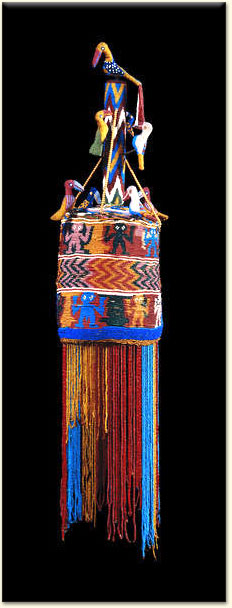In a previous post I wrote on the concept of Jesus as mediator, or μεσίτης as it is in the Greek New Testament.
http://fatherdaughtertalk.blogspot.com/2015/04/1-timothy-25.html
Today I read this in Christianity Today:
http://www.christianitytoday.com/behemoth/2015/issue-19/back-from-dead-heard-it-before.html
Back From The Dead? Heard It Before.
Ted Olsen April 2, 2017
... Jesus’ resurrection isn’t just one important resurrection story among several in the Bible. He’s the first of a new kind of resurrection. Which may be why everyone seems to be so confused when they meet the resurrected Christ. Remember: Jesus’ disciples had seen people come back from the dead before... They knew Lazarus personally. But Jesus coming back? That was different. His resurrection was not like the others. Examine, for example, the attention John’s gospel gives to the difference between Lazarus coming out of the tomb bound in his burial clothes and Jesus leaving the tomb with his “linen cloths lying there, and the face cloth . . . folded up in a place by itself.”[...]What’s important isn’t that Jesus really did raise Lazarus right then and there. It’s that Jesus suddenly changed resurrection from a what-and-when question to a who question. He changed it from a passive verb—someone was raised from the dead—to an active and personal noun. I AM the Resurrection.We’re still waiting for the resurrection on the last day; that’s our future hope. But he is that resurrection. Right now. Acting. Saving. Redeeming. Setting things right. Remaking creation into something better than ever. In starting a new, spirit-powered creation made from the dust of this first, fallen creation—like a stalk of wheat made from a cracked kernel—Jesus’ body is where it starts. He is the firstborn of all creation, and the first fruits of the new creation, the firstborn from the dead...
The first paragraph quoted makes no sense to me. It strikes me as the urge to believe stumbling over its own tongue.
The second paragraph is some sort of revelation through grammar, which moves me not a bit.
Now comes the third paragraph.
The third paragraph takes Jesus as active mediator between God and Mankind and drains the vitality from both from God and from Mankind; they are estranged from each other, but their opposition is a desultory and vapid thing: not much happens except for an occasional catastrophe inflicted from above or lust and hubris from below.
Once more, a mediator is an active middleman between two active parties.
A Mediator is a referee, an umpire, an arbitrator amidst the furor of opposing sides... not a yentl, not a matchmaker between a shy suitor and a coy bride-to-be.
To emphasize the Mediator and ignore the sides between which he mediates is to distort an ongoing process of negotiation and worlding (making a the world of a compact and agreement). God is occluded into the mists of remote divinity and mankind emerges as a corrupt image from a Cecil B. DeMille biblical epic.
The people of Israel in the desert did not just stand around one day and, having nothing better to do, say why not give a Seven Veils party, drink lots, and generally rip Sinai up! The idolatrous effort that went into the Golden Calf was a strenuous effort to make sense of their sufferings and their hopes in combination with various traditions which had been handed down to them from ancestral religious geniuses... who are nameless to us, but who must have existed.....
... they must have existed and strove to find the Numen of God; they had visions and prophesied; some of them used an icon of a golden calf to portray man-and-god-in-the-world....
An misunderstanding of the Mediator alone makes us stupidly ask the question: why does a good God permit evil?
Evil and Good are part of OUR negotiations. WE are responsible, and WE must change... for is that not the process of mediation? Both sides "change" something and come together?
--


















No comments:
Post a Comment